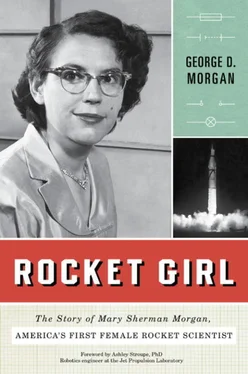Mary paused in her lesson, easing her grip slightly on the teats.
“That was wrong. I meant to say, J is kind of like a fishhook. Kind of. Turns out kinda isn’t even a word at all. Who woulda thunk?”
Mary looked around to make sure no one was approaching or watching, then removed a small slip of paper from a pocket in her dress.
“Hold on. I can’t remember the rest.” She unfolded the paper, revealing a series of crudely scrawled notes. “Ah yes— K . K is kind of hard to describe. Then L —like an I but with a foot. After L comes M , which happens to be the first letter of my name. N is like a sideways Z . We’ll get to Z in a moment. O is just a circle, and P is like B but without the bottom half-circle thing. Q comes next. Mrs. Bowman describes Q as an O that’s been stabbed. That’s funny. R is like K , but rounded at the top.”
Mary folded the paper and returned it to her dress.
“I think I know the rest.”
There was a sound—a footstep. Mary turned around to see Clarence right behind her.
“Gimme some milk.”
“No, Clarence. There won’t be enough.”
“Gimme some milk, Mary!”
“Dad says no!”
Mary screamed at him as Clarence reached in and grabbed the bucket. She tried to take it back, but he held it away at arm’s length, pushing Mary down with his free hand.
“Give it back!”
He offered the bucket, then pulled it quickly away again, laughing as she vainly struggled to reach it.
“I’ll tell dad!”
“Go ahead.”
Clarence lifted the bucket and drank. Mary helplessly watched as he guzzled all of her work away. He finished, then wiped his mouth with his shirt sleeve.
“You tell him, and I’ll hurt you.” Clarence tossed the bucket in the mud, then turned and walked toward the tall, dried-out wheat stalks. “Keep your mouth shut, little schoolgirl.”
Mary picked the empty bucket out of the sludge. Now she would have to clean it all over again. The well spout was nearby and she pumped water into the pail, using a cotton cloth to dry and sanitize its interior.
“Only good milk is clean milk.”
Mary returned to Irma and the egg crate.
“Sorry. We have to start over. Anyway, S is easy to remember because it looks like a snake, and it’s the letter that snake begins with. T is like an I with a flat hat. U is like a bowl. V is like an upside down A but with no stick in the middle. W is like two V ’s stuck together. X is shaped like those two boards at the front gate that cross each other. Y is like a person standing up with their arms raised, and Z is like a sideways N . You got all that?”
Irma let out a long and forlorn moo, as if to affirm she had understood the lesson well.
“So that’s the alphabet. The alphabet is very important; it’s what words are made of. You use letters to make words, and words to make sentences, and sentences to make paragraphs. That’s what books are—a whole lotta words, sentences, and paragraphs. Whatta ya think…”
Mary stopped to correct herself.
“Whatta you think about that, huh?”
Before Irma could respond, a clap of thunder rolled over the prairie and found its way to where she was sitting. Mary stood up and gazed past the grasslands toward the North Dakota horizon. A fresh Canadian storm was brewing slow and sure, its angry charcoal cloud layers leapfrogging one another, battling for position and marching steadily southward. They would arrive soon enough.
“Gonna have more rain, girl. Lots of it.”
Mary sat back down and picked up the pace of her work, concerned about being caught milking in the rain. Not that she cared for herself, so much. When it rained, drops of water would wash over Irma’s back, pick up the dust and dirt from her skin, and slop like grime into the bucket, contaminating the milk.
“Only good milk is clean milk,” she said, briefly turning her head to check on the clouds one last time. “Only good milk is clean milk.”
Irma agreed, and said as much.
A half hour later, Mary had a brimming bucket. As she toted it toward the creamer, her father and brothers returned in the truck, its cargo bed loaded with hundreds of pounds of lignite. With the temperature dropping seemingly every day, they would be burning lignite by the ton. Mary watched the men shovel the fuel into the storage bin. Lignite had always fascinated her. How, she wondered, could a rock that was pulled from the ground actually burn? It was a puzzle, and she made a mental note to ask Mrs. Bowman about it.
Mary arrived at the creamer and raised the lip of the bucket to its rim. Tilting the bucket slowly, the raw milk poured into the machine. In a few moments, the bucket was empty.
After unbuckling Irma’s hind legs, Mary led the cow back toward the barn for her late-afternoon feeding. As she walked, she quietly repeated the alphabet over and over and over.
5.
I HAVE NO IDEA WHAT YOU’RE TALKING ABOUT
“I do not have OCD, OCD, OCD.”
—WIDELY ATTRIBUTED TO EMILIE AUTUMN
I stare at my laptop, eyes drooping, breath slowing. According to the tiny digital clock in the bottom right-hand corner of the monitor, it is 1:32 a.m. I am exhausted. My wife and I have recently become foster parents and Ventura County has just placed a two-year-old boy with us. His name is Dalton, and he works overtime to find ways to keep us busy. As a result, most of my writing projects now have to be accomplished in the late evening, after everyone is in bed and things have quieted down.
The previous weekend I spent several hours interviewing Bill Webber, one of my mother’s former coworkers. Bill had sat at the desk directly next to my mother’s for several years, and now I’m sitting on a trove of great information. Finally, here is someone who knows where all the bodies are buried—far more so than even my father, who had worked in a different department than my mother. During our interview, Bill shared numerous anecdotes and historical details with me and, better still, shared my passion for getting my mother’s story told.
Still, there is a gaping hole that cannot seem to be filled no matter whom I talk to.
For years before our mother’s death, and long thereafter, my three siblings and I had often discussed what physical or mental ailment had afflicted our mother. Everyone knew about it, but no one talked about it. As I have mentioned, Mary Sherman Morgan never discussed anything personal to anyone, anytime, anywhere. And anything of a medical nature was at the top of the list of subjects over which she would rather die than discuss with her children. Yet it had always been obvious to us that something was wrong.
Two months before my brother Stephen was born, Mary decided to retire early from the aerospace business. It was December 1955. In a subsequent employment application two decades later she would write that her reason for leaving her prior employer was “to raise a family.” [1] Mary’s 1974 employment application, courtesy of G. Richard Morgan.
I wasn’t even three yet, too young to remember much of anything. But over the next few years there were events and situations that began to accumulate in my memory. I remember our mother enjoyed playing four-handed bridge with herself—laying out four hands and strategizing how each hand would be played if it were hers (like a solo chess master playing both white and black). I remember walking home from school one day (yes, there was a time in this country when it was considered normal for very young children to walk to and from school by themselves) and arriving to a different atmosphere in the house. My mother was at the dining table with what had become her four props—a newspaper, a cup of coffee, a cigarette, and a deck of cards. She would read the paper, take a sip of coffee, take a drag on the cigarette, then repeat that action until the cigarette was gone and the coffee cup was empty. At some point she would remove the cards from their pack and begin shuffling them. And she would shuffle them, and shuffle them, and keep on shuffling them. Over and over and over. Eventually she would stop shuffling and play solitaire or solo four-handed bridge—but not until she had shuffled the deck a hundred times more than necessary. The detail I should stress here is that all this incessant shuffling was accompanied by anger—grinding teeth and furious mumbling. I was about six years old; I knew no other mothers to compare her to, so I thought it was normal behavior.
Читать дальше












